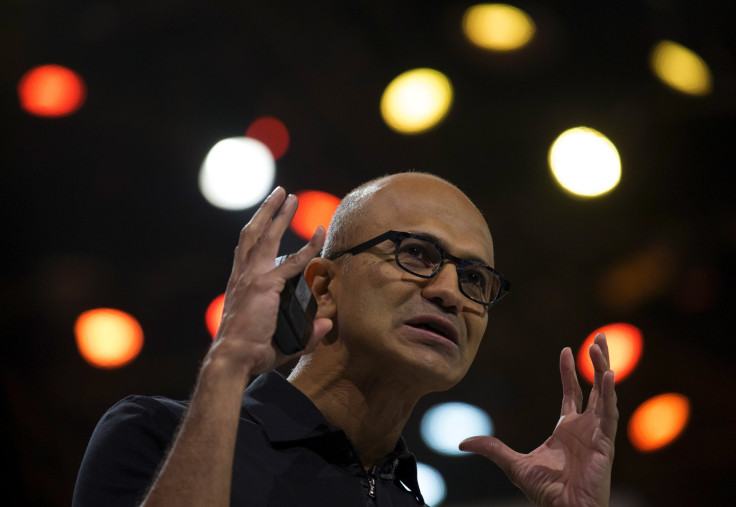Microsoft's Satya Nadella Talks Up Productivity Heritage As Google Challenges Office 365

Microsoft CEO Satya Nadella on Thursday dusted off his July 2014 message of "bold ambition" to put the company at the heart of "reinventing productivity" for people and companies around the world, as he prepares to stave off a growing challenge from Google Inc. Nadella was speaking at the opening of a two-day conference organized by the company in Mumbai, India's financial hub.
As more people and companies move to Internet-based work, away from software loaded on individual computers -- the model that still makes Microsoft most of its money -- Google is seen to have some inherent advantages as an Internet company. And Nadella's challenge is to ensure that as the world's biggest businesses move to the cloud, Microsoft, and its software tools such as Office 365, remain the preferred choice.
Office 365 is Microsoft's brand name for a clutch of software programs including email, word processing, calendar, instant messaging and computer storage -- on the Internet through the company's data centers. Google, meanwhile, has said that it currently has 2 million businesses as paying customers that use its Apps for Work.
For now, however, Microsoft dominates the business software scene with its influence over key people -- executives such as chief information officers -- who make the spending decisions on software. However, as companies get new, younger employees, and new startups rise and grow into large corporations, many will likely be a lot more familiar and comfortable with Google's way of working.
"Everything that we do with tools like Office 365 are built for networks and teams," Nadella said, adding that Microsoft had the "vision for (how) the entirety of all the data can be brought together" to help people get work done more efficiently and effectively.
Microsoft is also in the thick of how all this data will originate, be gathered, distributed and worked on, Nadella said. "In the next 10 years, there will be more computing in people's lives -- on their wrists, in the rooms they walk into, big screens, small screens, things without no screens [sic] like sensors."
And as machines and software would bring automation to much of this, requiring humans to intervene only when exceptions pop up in set processes is a "technology agenda that is going to be realized in multiple years," he said.
© Copyright IBTimes 2025. All rights reserved.




















